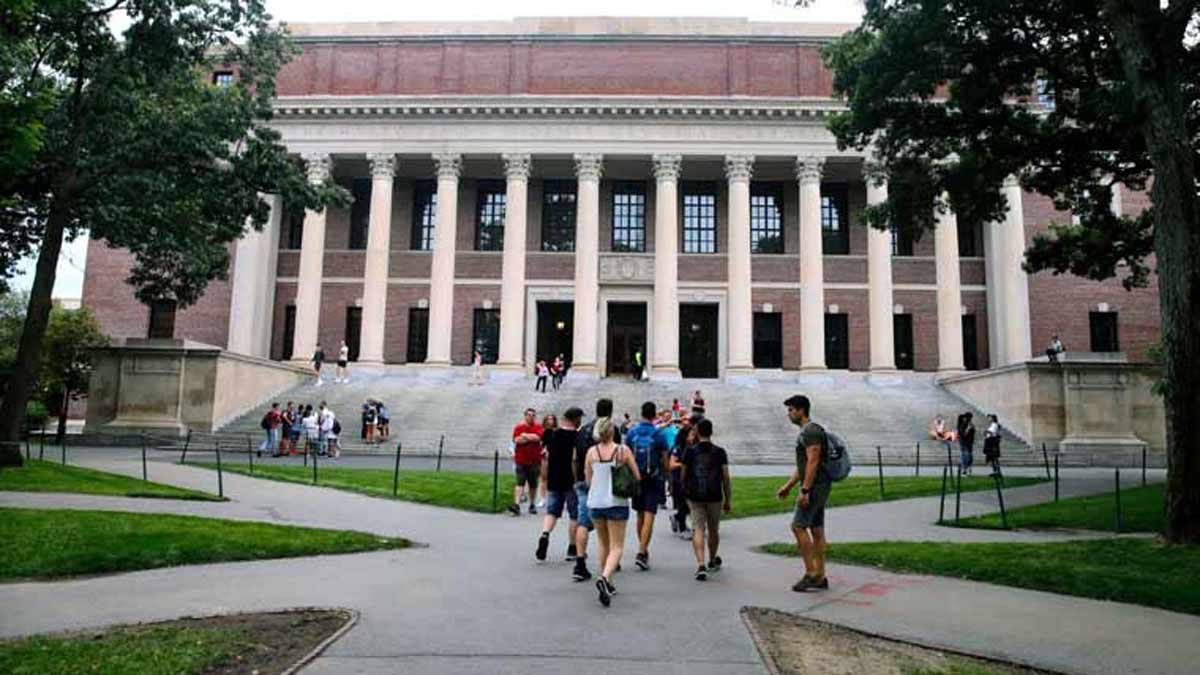Harvard University research into ALS, Tuberculosis and more in jeopardy over Trump administration's grant cuts
 (File) Harvard University | AP
(File) Harvard University | AP
With the US Department of Homeland Security revoking Harvard University's ability to enrol international students, uncertainty looms large about academics and various research projects.
Earlier, the US Department of Health and Human Services announced that it was terminating $60 million in federal grants to Harvard University over the varsity's failure to address antisemitic harassment and ethnic discrimination on campus.
Harvard mentions the following research activities are facing a roadblock due to funding issues.
Professor Don Ingber's novel drug research
Don Ingber, a professor at Harvard Medical School as well as the founding director of Wyss Institute for Biologically Inspired Engineering, has found himself at a tricky crossroads after receiving a stop-work order from the officials.
Ingber’s primary project uses organ-on-a-chip technology developed at the Wyss to investigate radiation damage to human lung, intestine, bone marrow, and lymph nodes, providing a tool to both model damage to tissues lining the chip’s tiny channels and identify new drugs that might improve the damaging effects.
As per Harvard, his project had more than $19 million in multiyear contracts with a unit of the U.S. Department of Health and Human Services.
Immunologist Sarah Fortune's Tuberculosis research
Speaking to CNN, Sarah Fortune describes her tuberculosis (TB) research as a 'moonshot' effort to fight the disease.
TB, an infectious disease that affects 10 million people each year, requires better research and treatments to prevent and heal the affected.
“This project has been ten years in the making. It is actually the NIH’s largest single investment in TB. It was a TB moonshot in order to try to better understand why so many people are infected with TB..with the idea that we need to better be able to diagnose people with TB, better be able to treat people with TB, and ideally have a vaccine that would protect people against TB," says Fortune.
David Walt's research on ALS (Lou Gehrig's disease)
Professor David Walt's research on ALS focuses on developing an ultrasensitive diagnostic test for the condition that detects biomarkers present in the blood at the earliest stages of the disease.
The test according to him also has the potential to be used to discover drugs that can effectively treat the disease.
"Cancelling research projects at Harvard and other institutions across the U.S. will delay new drugs and therapies for debilitating diseases that affect vast swaths of the U.S. and global population — cardiovascular disease, cancers of all types, neurodegenerative diseases, infectious diseases and more," said David R. Walt in response to the cancelling of grants by the US government.
Health